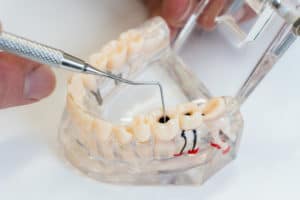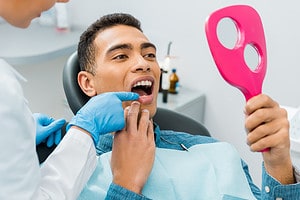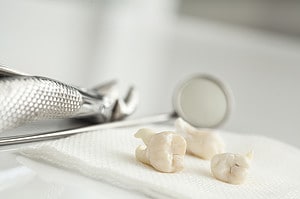Understanding dental emergencies is crucial for reacting swiftly and effectively in urgent situations. Dental emergencies can range from severe pain to a knocked-out tooth, and knowing the immediate steps can make a significant difference in the outcome. Symptoms of dental emergencies include persistent toothaches, swelling, bleeding, and trauma to the mouth.
When faced with a dental emergency, seeking urgent care from professional emergency services is essential to receive timely treatment and prevent further complications.
Prompt action is vital in addressing dental emergencies, especially when experiencing intense pain or sudden injuries. Immediate treatment alleviates discomfort, helps preserve oral health, and prevents long-term issues. Professional oral health providers are equipped to handle various dental emergencies, offering the necessary expertise and interventions to address urgent care needs effectively.
Toothaches
Toothaches can stem from various causes, such as tooth decay, abscesses, gum disease, or infections. When faced with a toothache, it is essential to address the discomfort promptly to prevent further complications. Experiencing a toothache can be distressing and uncomfortable. It often signals an underlying dental issue requiring prompt attention.
In cases of severe pain or swelling accompanied by a toothache, it is crucial to seek emergency dental care. Ignoring a toothache could lead to worsening infection or abscess, which may require immediate treatment to prevent the spread of infection. Dental professionals can provide the necessary interventions to alleviate the pain and address the underlying cause of the toothache.
In addition to seeking professional dental care, maintaining good dental hygiene practices at home can help prevent toothaches. Regular brushing, flossing, and dental check-ups can help prevent decay and gum disease, reducing the likelihood of experiencing a toothache. If a toothache persists, seeking emergency dental care is vital to ensure timely relief and proper treatment.
Chipped or Broken Teeth
A chipped tooth can occur due to various reasons, such as trauma, biting on hard objects, or tooth decay. Prompt action is crucial when faced with chipped or broken teeth to prevent further damage and potential complications.
In case of a minor chip, rinse the mouth with warm water, apply slight pressure if bleeding, and use a cold compress to reduce swelling. It’s important to save any tooth fragments if possible, as your dentist may be able to bond them back. However, if the chip is significant or there is a tooth fracture, seek emergency dental care immediately.
Avoid chewing on the affected side and stick to soft foods until you see a dentist. Schedule a dental appointment promptly to prevent infection or further damage. Remember, quick and appropriate first aid for chipped or broken teeth can significantly affect the outcome of the dental injury.
Knocked-Out Tooth
Upon experiencing a knocked-out tooth, immediate action is crucial in preserving the tooth and increasing the likelihood of successful reattachment. When faced with this dental emergency, follow these steps to save the tooth:
- Handle with Care: To prevent damage, pick up the avulsed tooth by the crown (top part) and avoid touching the roots.
- Keep It Moist: If possible, gently rinse the tooth with milk or saliva and try to place it back in the socket. If this isn’t feasible, store it in a container with milk or saliva to keep it moist.
- Quick Dental Visit: Time is of the essence, so seek emergency dental care promptly. The sooner you see a dentist, the higher the chances of successful reattachment.
Lost Fillings or Crowns
When a filling or crown becomes dislodged, prompt action is key to preventing further complications and maintaining dental health. When faced with a lost filling or crown, it is crucial to seek immediate attention to avoid further issues.
One temporary solution is dental cement, which can help protect the exposed area until you can receive professional care. Avoiding delay in addressing a lost filling or crown is essential to prevent damage to the affected tooth and surrounding teeth.
Professional repair is necessary to ensure the tooth’s proper restoration and avoid any potential infections or complications. Dental professionals have the expertise to address crown detachment or lost fillings effectively. By seeking professional care promptly, you can safeguard your oral health and prevent any long-term issues associated with this dental emergency.
Abscesses
The presence of a dental abscess signals a serious oral health issue that requires immediate attention from a dental professional. Prompt action is crucial to prevent the infection from spreading and causing further complications.
Here are key points to consider regarding dental abscesses:
- Recognising Symptoms: Dental abscess symptoms may include severe throbbing pain, swelling of the face or gums, sensitivity to hot or cold, fever, and a bad taste in the mouth.
- Emergency Dental Treatment: Seeking emergency dental treatment is vital to address the abscess promptly. Dentists may prescribe antibiotics to combat the infection and recommend drainage to alleviate the build-up of pus.
- Pain Management: Effective pain management is essential in treating dental abscesses. Dentists can guide patients through pain management during treatment and recovery.
Ignoring a dental abscess can lead to serious consequences, so if you suspect you have one, seek immediate professional care to prevent further complications.
Key Takeaways
Quick and decisive action is crucial to protecting your oral health in dental emergencies. Delays can lead to further complications, so seeking urgent care at a dental clinic is essential.
Aspendale Gardens Dental Care, located in Victoria, 3195, is dedicated to providing prompt, quality dental services to address emergencies effectively. Don’t hesitate to reach out for assistance when faced with a dental crisis to safeguard your smile and overall well-being. Your dental health matters—act swiftly and proactively to ensure the best possible outcome.











